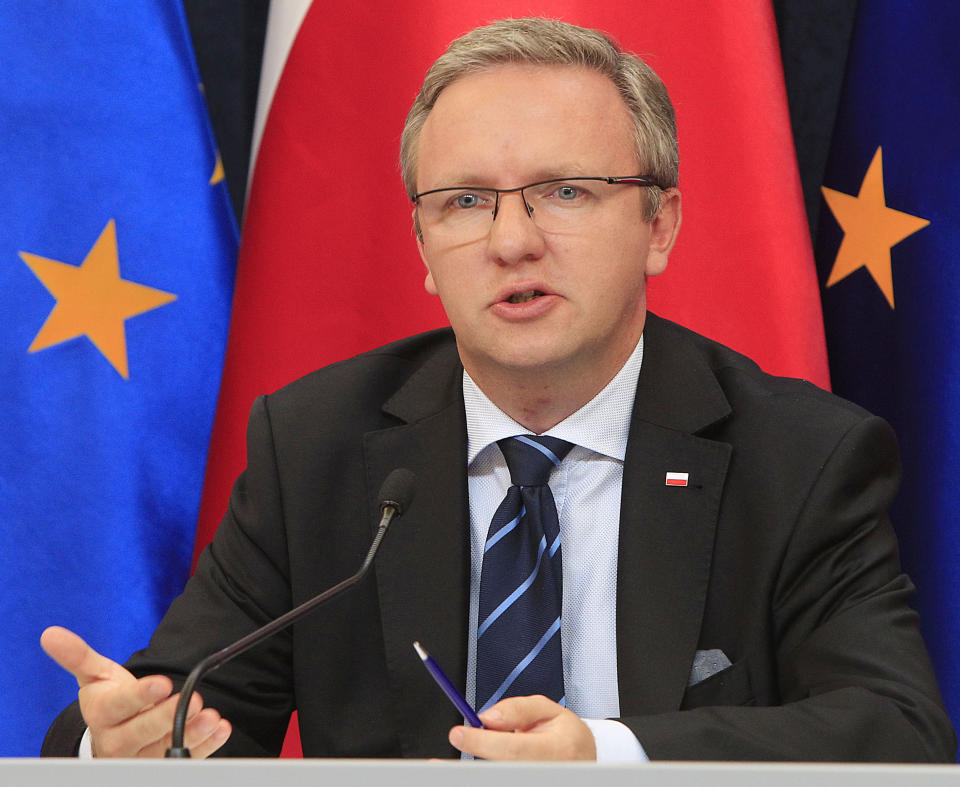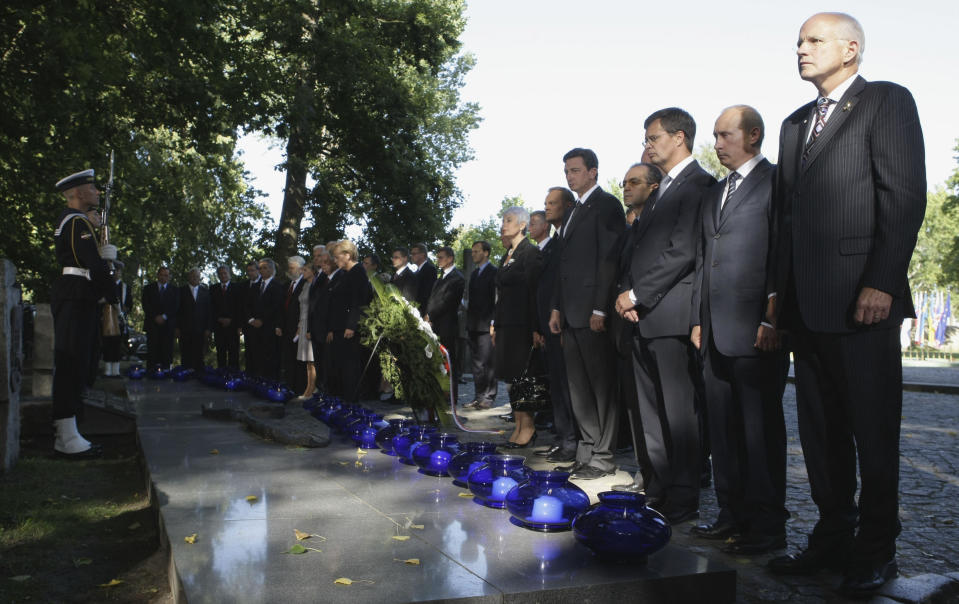Poland snubs Russia before World War II commemoration
WARSAW, Poland (AP) — Polish authorities have refused to invite a Russian delegation to a commemoration ceremony marking the 80th anniversary of the outbreak of World War II.
Krzysztof Szczerski, an aide to the Polish president, said Wednesday in comments carried by the Polish news agency PAP that Russia hasn't been invited to the events in September because of its aggressive actions in Ukraine.
Russia has been slapped with various international sanctions for its annexation of Ukraine's Crimea in 2014 and ongoing support for separatists in eastern Ukraine.
Szczerski said the anniversary ceremonies will be held "in the company of countries with whom Poland cooperates closely now for peace that is based on the respect for international law, for the sovereignty of nations and of their territory."
Russia's Foreign Ministry said in a statement late Wednesday that it was "bewildered" by the snub, and accused the Polish government of rewriting history to suit its political agenda.
"Despite the critical contribution of our country to defeating Hitler's Germany and liberating Poland from Nazi invaders, there is no place for Russia there," the statement said.
Some Polish opposition politicians voiced their disagreement over the right-wing government's decision to snub Russia.
Former Prime Minister Leszek Miller, an ex-Communist who is now running for a seat in the European Parliament, said on Polsat TV that "it is hard to talk about World War II without mentioning the armed effort of the Soviet Union."
Russian President Vladimir Putin, who was then the prime minister, traveled to Poland for anniversary observances 10 years ago and made a speech at the Westerplatte peninsula, in Gdansk, where the war began with Nazi Germany's invasion Sept. 1, 1939. Barely two weeks later, the Soviet Red Army also invaded Poland, carving it up jointly with Germany, an act that is still seen in Poland as betrayal.
The visit took place even though Russia's relations with Polish authorities of the time were also tense. In an effort toward improving them, Putin and Poland's then-prime minister, Donald Tusk, held talks.
"The situation was dramatically different then. Since then, we had the annexation of Crimea and the war in Donbass, where Russia broke all the possible norms and rules and isolated itself," said Michal Baranowski, head of the Warsaw office of the German Marshall Fund of the United States.
"It would be absolutely shocking if Putin were invited to participate as a normal head of state, because the situation is not normal."


